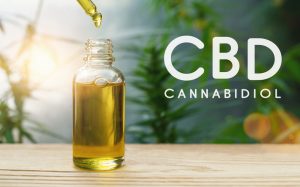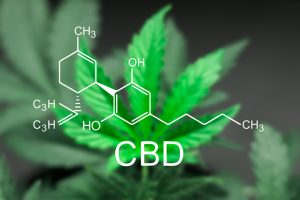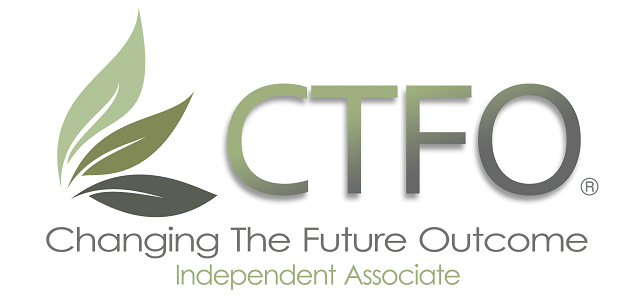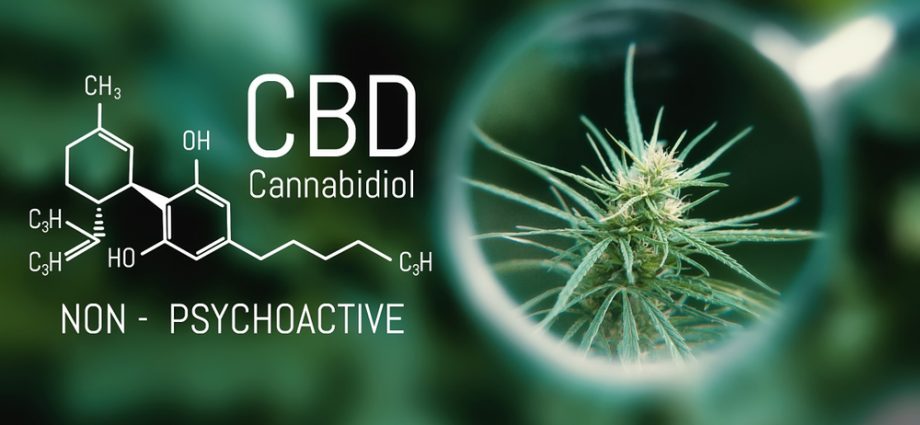What Is CBD: The Complete Beginner’s Guide
What is CBD?
CBD, short for cannabidiol, is a naturally occurring compound found in the cannabis plant. It is one of over 100 cannabinoids found in cannabis. Unlike its well-known counterpart THC (tetrahydrocannabinol), CBD is non-psychoactive, meaning it doesn’t produce the “high” typically associated with marijuana use.
The Difference Between Hemp and Marijuana
Hemp and marijuana are both varieties of the cannabis plant, but they have distinct differences. The primary difference lies in their chemical composition, particularly in their levels of THC and CBD.
- Hemp: Hemp refers to cannabis plants that contain very low levels of THC (less than 0.3% by dry weight) and higher levels of CBD. It is grown for industrial purposes, such as for its fibers, seeds, and oils.
- Marijuana: Marijuana, on the other hand, contains higher levels of THC and lower levels of CBD compared to hemp. It is cultivated for its psychoactive effects and medicinal properties.
Basic CBD Characteristics
- Non-Psychoactive: Unlike THC, CBD does not cause intoxication or euphoria.
- Potential Health Benefits: CBD has gained popularity for its potential therapeutic effects, which may include relief from pain, anxiety, inflammation, seizures, and insomnia.
- Various Forms: CBD products come in various forms, including oils, tinctures, capsules, edibles, topicals, and vaping liquids.
- Legal Status: The legal status of CBD varies depending on its source (hemp or marijuana) and the regulations in different regions. In many places, CBD derived from hemp is legal, while CBD derived from marijuana may be subject to more restrictions.
What Are The Benefits Of CBD?
Anxiety:
CBD has been studied for its potential anti-anxiety effects. Research suggests that CBD may interact with serotonin receptors in the brain, which are involved in regulating mood and anxiety. Some studies have shown that CBD may help reduce symptoms of anxiety disorders, such as generalized anxiety disorder (GAD), social anxiety disorder (SAD), and post-traumatic stress disorder (PTSD). Many people report feeling calmer and more relaxed after taking CBD, though more research is needed to fully understand its effects on anxiety.
Pain:
One of the most common reasons people use CBD is for pain relief. CBD may interact with receptors in the brain and immune system to reduce inflammation and alleviate pain. Some studies have found that CBD can help reduce chronic pain associated with conditions like arthritis, multiple sclerosis (MS), and fibromyalgia. Additionally, CBD may also help alleviate neuropathic pain, which is caused by damage to the nerves.
Inflammation:
CBD has shown promise as an anti-inflammatory agent. Inflammation is the body’s natural response to injury or infection, but chronic inflammation can contribute to various health problems, including autoimmune diseases and chronic pain conditions. CBD may help reduce inflammation by interacting with the body’s endocannabinoid system, which plays a role in regulating immune responses. Some studies suggest that CBD can help alleviate inflammation associated with conditions like arthritis, inflammatory bowel disease (IBD), and neuroinflammatory disorders.
Seizures:
One of the most well-known uses of CBD is in the treatment of seizures, particularly in forms of epilepsy that are resistant to conventional treatments. Epidiolex, a CBD-based medication, has been approved by the FDA for the treatment of certain types of epilepsy, including Dravet syndrome and Lennox-Gastaut syndrome. CBD’s anticonvulsant properties are believed to be responsible for its effectiveness in reducing the frequency and severity of seizures in some patients.
Spasticity:
Spasticity refers to muscle stiffness and involuntary muscle spasms, which are common symptoms of conditions like multiple sclerosis (MS) and spinal cord injury. CBD has shown potential in reducing spasticity and improving mobility in some individuals with these conditions. Studies have suggested that CBD’s ability to interact with the endocannabinoid system and modulate neurotransmitter activity may contribute to its muscle-relaxing effects.
Nausea:
CBD may also help alleviate nausea and vomiting, particularly in individuals undergoing chemotherapy or experiencing motion sickness. While the exact mechanisms are not fully understood, it is believed that CBD interacts with serotonin receptors in the brainstem, which play a role in regulating nausea and vomiting. Some studies have shown that CBD, either alone or in combination with THC, can help reduce chemotherapy-induced nausea and vomiting, providing relief for cancer patients undergoing treatment.

Is CBD Safe?
CBD is generally considered safe for most people when used appropriately and in moderation. However, like any supplement or medication, it can cause side effects in some individuals. Common side effects of CBD may include drowsiness, dry mouth, diarrhea, changes in appetite, and interactions with other medications. It’s essential to consult with a healthcare professional before using CBD, especially if you have any underlying health conditions or are taking medications that may interact with CBD.
How Do I Use CBD?
CBD products come in various forms, and the best method of consumption depends on your preferences and the reason for using CBD. Here are some common ways to use CBD:
CBD Oil:
CBD oil is one of the most popular and versatile forms of CBD. It typically comes in a dropper bottle, allowing for easy dosing. To use CBD oil, you can place a few drops under your tongue and hold them there for about 30-60 seconds before swallowing. This method allows for fast absorption of CBD into the bloodstream.
Edible CBD:
Edible CBD products, such as gummies, capsules, and beverages, are another convenient way to consume CBD. These products come in pre-measured doses, making it easy to control your intake. Keep in mind that edible CBD products may take longer to take effect compared to CBD oil, as they need to be digested first.
Smoked or Vaporized CBD:
Some people choose to smoke or vaporize CBD flower or concentrates using devices such as vape pens or dab rigs. Smoking or vaping CBD allows for rapid absorption into the bloodstream, making it a preferred method for those seeking immediate relief. However, it’s essential to be mindful of the potential risks associated with smoking or vaping, such as lung irritation.
Topical CBD:
Topical CBD products, such as creams, lotions, and balms, are applied directly to the skin and can be used to target localized pain, inflammation, or skin conditions. Topical CBD products are absorbed through the skin and may provide relief without entering the bloodstream, making them suitable for targeted application.
When using CBD, it’s important to start with a low dose and gradually increase as needed while monitoring for any adverse reactions. It’s also crucial to choose high-quality CBD products from reputable manufacturers to ensure safety and effectiveness. Additionally, consulting with a healthcare professional can help you determine the right dosage and method of consumption based on your individual needs and health status.
Where Can I Find CBD?
CBD products are widely available and can be found in various locations, including:
- Online Retailers: Many online retailers sell a wide range of CBD products, including CBD oil, edibles, topicals, and more.
- Health and Wellness Stores: Some health and wellness stores, pharmacies, and natural food stores may carry CBD products.
- Cannabis Dispensaries: In regions where cannabis is legal for medicinal or recreational use, CBD products may be available at licensed dispensaries.
- Specialty CBD Stores: Some cities have specialty stores that exclusively sell CBD products, offering a wide selection of options.
Frequently Asked Questions (FAQs):
Is CBD legal?
The legality of CBD varies depending on its source (hemp or marijuana) and local regulations. In many places, CBD derived from hemp with less than 0.3% THC is legal, while CBD from marijuana may face stricter restrictions.
Can CBD make you high?
No, CBD is non-psychoactive, meaning it doesn’t produce the intoxicating effects associated with THC. CBD interacts with the body differently and does not cause euphoria.
How long does it take for CBD to work?
The onset of CBD’s effects can vary depending on the method of consumption. For example, sublingual administration (under the tongue) typically results in faster absorption compared to edibles, which need to be digested first.
Conclusion
In conclusion, CBD offers a promising natural remedy for various health issues. Its non-psychoactive nature and potential therapeutic benefits distinguish it from THC. Available in diverse forms like oils and edibles, CBD caters to individual preferences. While generally safe, caution is advised for potential side effects and medication interactions. Consulting healthcare professionals before use is crucial. Accessible through online retailers, health stores, and dispensaries, CBD provides options for those seeking alternative therapies. Continued research empowers informed decisions about CBD’s efficacy and safety for improved well-being.


